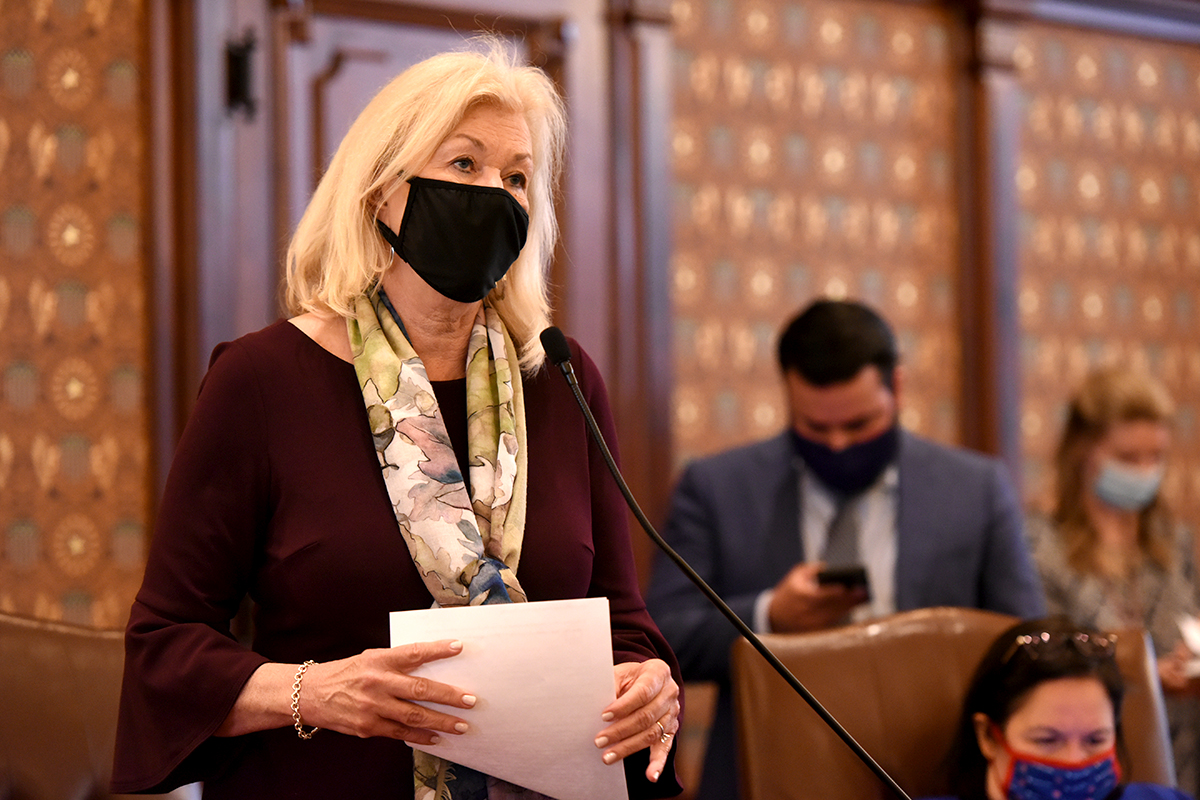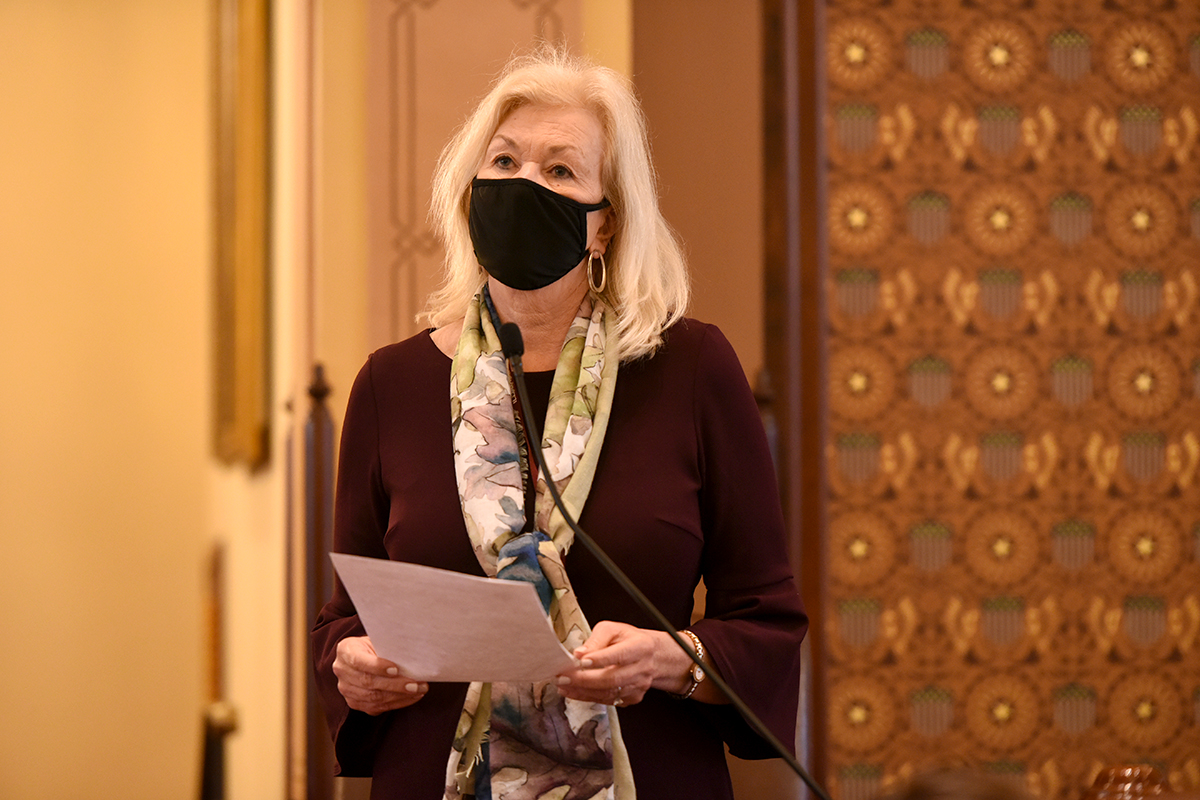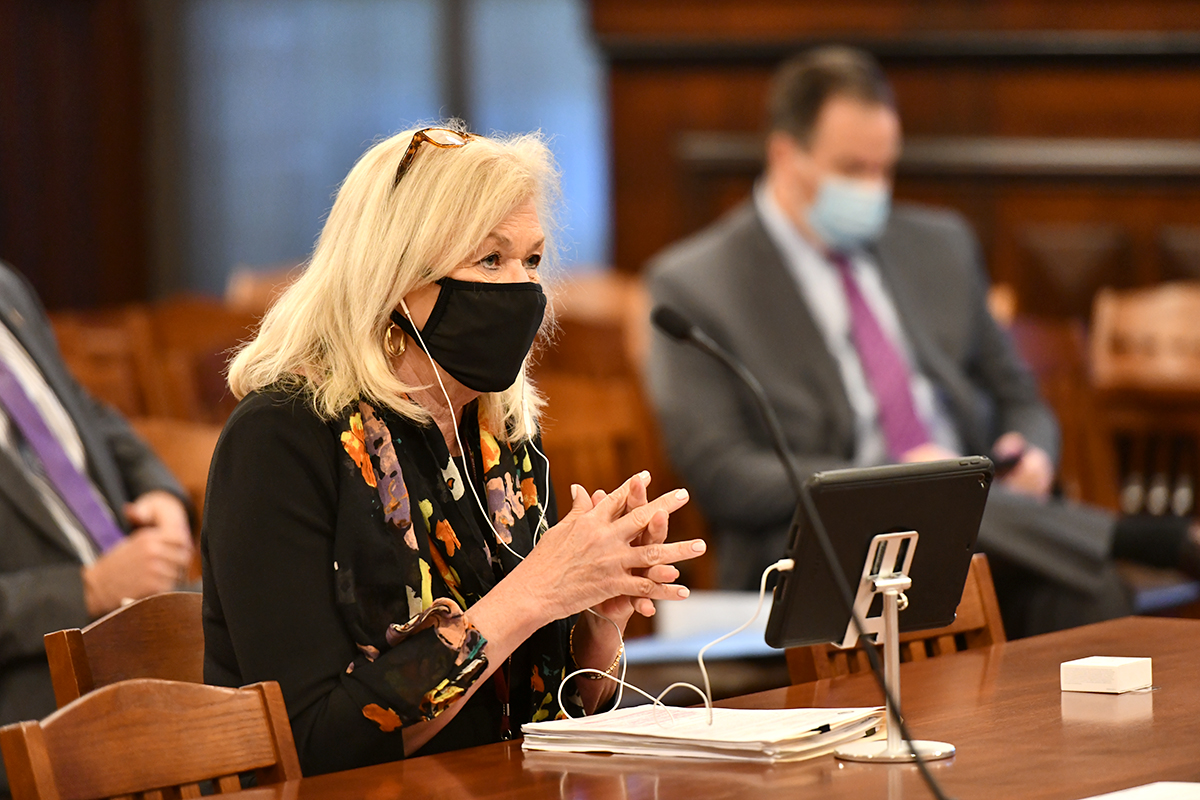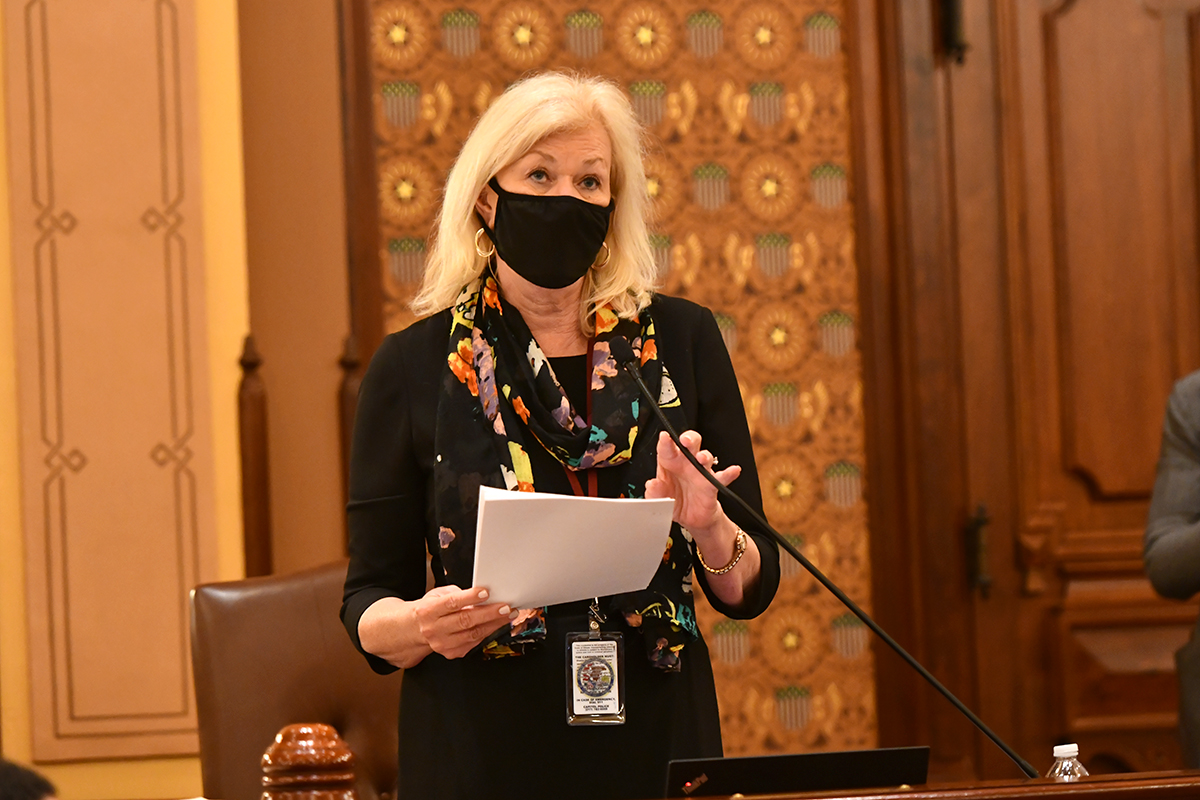- Details
- Category: Latest News
HIGHWOOD – State Senator Julie Morrison (D-Lake Forest) is congratulating dozens of students in the district she represents for being named 2021-22 Illinois State Scholars by the Illinois Student Assistance Commission.
“Despite the obstacles the COVID-19 pandemic brought forth, students across the state continued to work hard to make the most of the situation,” Morrison said. “Illinois State Scholar recipients have proven nothing can stand in their way toward a successful educational career.”
Illinois State Scholar winners rank in approximately the top 10% of the state’s high school seniors from 676 high schools in all 102 counties. Selection is based on a combination of standardized test scores and class rank or unweighted GPA at the end of the student’s junior year. ISAC works in conjunction with the students’ high school guidance counselors to determine the winners.
Students from 10 area high schools receiving the honor -- including Buffalo Grove, Palatine, Rochelle Zell Jewish, Wheeling, Deerfield, Fusion Academy - Lake Forest, Highland Park, Lake Forest Academy, Lake Forest and Woodlands Academy.
Recipients of the award will receive a congratulatory letter from ISAC, and a Certificate of Achievement will be sent to their high school. State Scholars will also receive a digital badge issued by ISAC that can be displayed on online profiles, exhibited on social media, and shared with prospective colleges and employers.
“Receiving both college admission and financial aid is a competitive process – one that is made easier by being named an Illinois State Scholar,” Morrison said.
More information about the State Scholar program can be found at ISAC’s website.
- Details
- Category: Latest News
SPRINGFIELD – State Senator Julie Morrison (D-Lake Forest) passed a measure through the Senate Friday that creates an organ donation tax credit for private employers.
“Organ donors transform lives and reshape futures through selfless acts,” Morrison said. “I’m hopeful this measure will encourage more people to participate in the generous act they feel they have been called to do.”
The measure creates an optional organ donation tax credit for private employers. The credit is applicable if the employer allows its employees the option to take a paid leave of absence for a minimum of 30 days for serving as an organ or bone marrow donor.
Employers can receive a credit equal to the amount of tax withholding payments due with respect to wages paid while an employee is on leave. That amount, however, cannot exceed $1,000 for each employee who takes an organ donation leave.
In 2018, 3,402 people in Illinois were candidates for a kidney transplant, but by the end of the year, only 798 people received a transplant. Encouraging living donors is key toward ensuring more people who need the lifesaving surgery receive it.
“Would-be donors face many challenges and barriers that keep them from giving the gift of life,” Morrison said. “We must do all we can to increase the number of living donors in Illinois – and this is a great first step.”
More than a dozen states already have organ or bone marrow donor leave policies.
Senate Bill 1918 now heads to the House for further consideration.
- Details
- Category: Latest News
SPRINGFIELD – A steadfast supporter of keeping tobacco out of the hands of children, State Senator Julie Morrison (D-Lake Forest) passed the Preventing Youth Vaping Act through the Senate Thursday.
“Vaping- and e-cigarette-related deaths and illnesses have become a nationwide outbreak that no user is immune to — no matter how young they are,” Morrison said. “We were doing so well on changing the culture of smoking, and now we have gone backward — especially the younger generation.”
The measure would place a number of restrictions on electronic cigarettes, including prohibiting marketing tactics that use images of cartoons or video games that appeal to children. Additionally, it prohibits shops from offering discounts on electronic cigarettes and requires sellers shipping the products to ensure the purchaser is at least 21 years old.
“It’s common sense that if it’s illegal to sell these products to kids, it should be illegal to market to them,” Morrison said. “I hope the Illinois General Assembly can come to an agreement on a bill that will keep these products out of the hands of children.”
Morrison has been an advocate for putting an end to tobacco use in teens since entering the General Assembly. In 2019, she successfully passed a law that increases the age to legally purchase tobacco to 21.
Senate Bill 512 now heads to the House for further consideration.
- Details
- Category: Latest News
SPRINGFIELD – Due to the extremely high cost of EpiPens, many people go without – living life each day hoping they aren’t faced with an allergic reaction that requires the lifesaving medicine. To combat the burdensome price, State Senator Julie Morrison (D-Lake Forest) has passed a measure to require insurers to cover medically necessary epinephrine injectors.
“With increases in food allergies and other serious allergic conditions, people are relying on EpiPens more than ever,” Morrison said. “Nobody with a serious allergy should go without an epinephrine injector simply because they cannot afford one.”
In 2019, Morrison passed legislation to require insurers to cover medically necessary epinephrine injectors – also known by the brand name of EpiPens – for minors. However, she wants to take the law one step further by removing the age limitation. Morrison introduced identical legislation last year, but it was stalled due to the onset of the COVID-19 pandemic.
When injected into people experiencing a severe allergic reaction, epinephrine narrows blood vessels and opens lung airways, reversing the symptoms of a potentially fatal allergic reaction.
Senate Bill 1917 passed the Senate Wednesday and now heads to the House for further consideration.
More Articles …
Page 21 of 97









